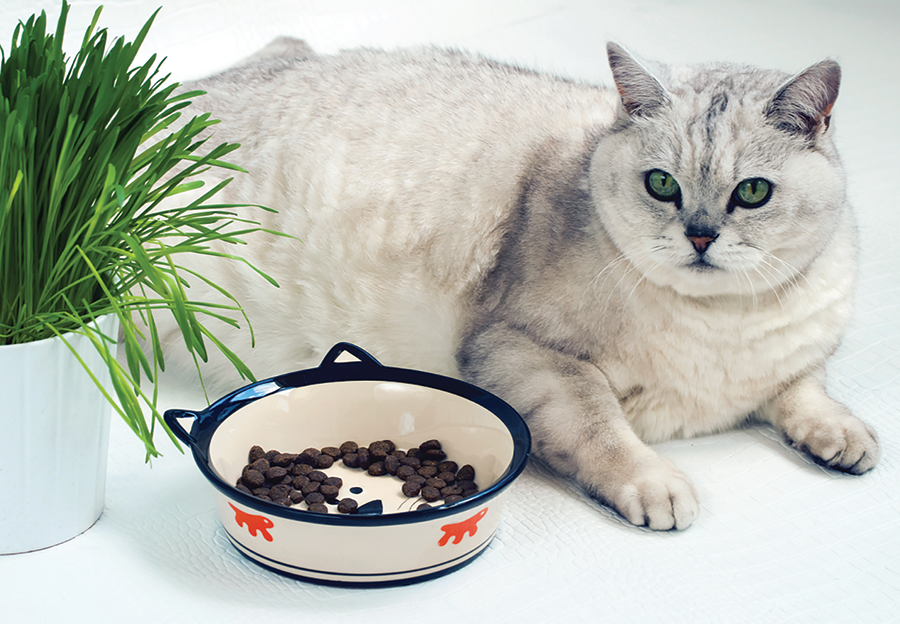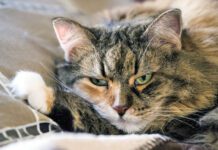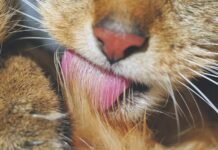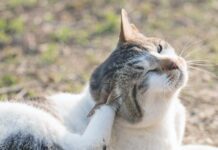A doctoral candidate at the University of Guelph is exploring choline in the diets of overweight cats, according to the Pet Food Industry newsletter. Alexandra Rankovic’s concern is that 50 to 60% of North American cats are overweight and she is concerned about hepatic lipidosis (fatty liver).
Hepatic lipidosis is often diagnosed in cats and can be fatal. In this condition, the liver becomes filled with fat (triglycerides accumulate in the cells of the liver) and cannot function. Known as fatty liver syndrome, the disease can severely impair a cat’s health.
Choline is a water-soluble organic compound that is similar to B vitamins. It is an essential nutrient for cats, which means it must be included in the cat’s diet. The main food sources are eggs and organ meats such as hearts and livers.
The Association of American Feed Control Officials (AAFCO), which sets nutrient requirements used by food manufacturers, says that adults cat need a daily minimum of 2,400 mg/kg (2,400 ppm) choline. Cats on unconventional/homemade diets, restricted diets, those that are obese or undergoing weight loss, and animals that are growing, may need additional choline.
Rankovich did three studies involving dietary choline supplementation in cats. For the first study, obese cats consumed five times the recommended amount of choline. In this study, the extra choline appeared to decrease fat stores in the liver by breaking down and mobilizing fat from liver tissues.
The second study looked at growing kittens. For 12 weeks post neutering, kittens free fed but also given extra choline. Since neutering can contribute to obesity in cats, it was hoped this would help keep neutered kittens fit and trim. Choline supplementation did help to keep weight gains down, partly through decreased appetite.
For the third study, cats that were already overweight were selected and given six to eight times the recommended amount of choline in their diets. As in the first study, these cats showed better liver health with fat mobilized out of the liver.
More research needs to be done before additional choline can be considered desirable in cat food, but these studies provide an important first step in understanding the potential role of choline in feline obesity.




